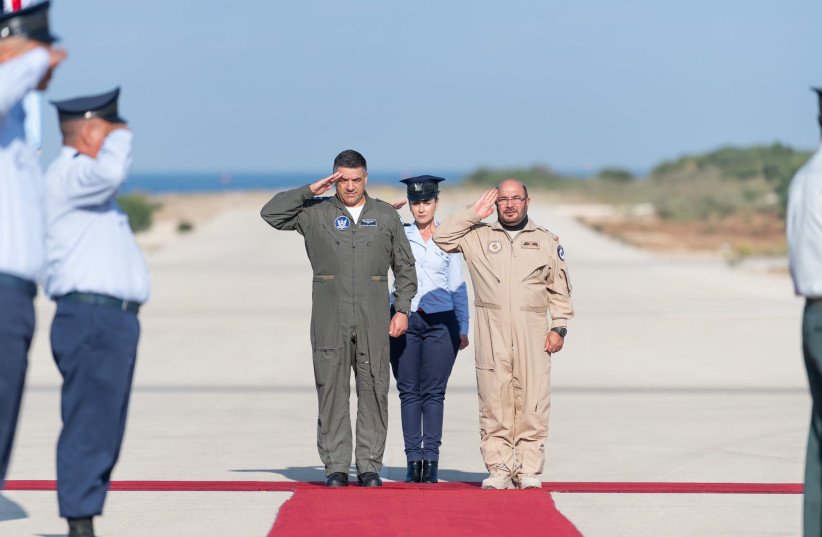Israeli defense company Elbit Systems announced that its subsidiary in the United Arab Emirates was awarded a contract to supply airborne defense systems for the UAE Air Force tanker aircraft.
The contract, worth approximately $53 million, will see the Elbit Systems Emirates subsidiary supply Direct Infrared Countermeasures (DIRCM) and airborne Electronic Warfare (EW) systems for the Airbus A330 Multi-Role Tanker Transport aircraft of the UAE Air Force.
“Elbit Systems views the UAE as an important market and believes that this contract award further highlights the technological advantage and maturity of the solutions offered by the company in this field,” read a statement released by Elbit.
As part of the contract, Elbit will deliver a multi-turret configuration of the J-MUSIC™ Self-Protection System, together, with the Infra-Red-based Passive Airborne Warning System (PAWS IR) that, according to the company, will “provide high levels of protection and redundancy.”
The J-MUSIC DIRCM and the integrated PAWS IR are designed with open architecture and integrate the latest laser technology along with a high frame-rate thermal camera and a small, dynamic high-speed sealed-mirror turret making it possible to defend against infra-red missile threats.

The contract will be performed over a five-year period.
Elbit’s DIRCM systems have accumulated more than 350,000 operational flight hours and are installed onboard more than 25 types of aircraft, including Lockheed Martin’s C130J, NATO’s Multinational Multi-Role Tanker Transport fleet and many more.
Elbit “is witnessing a growing demand for this type of self-protection capabilities in light of the rising threat that aircraft face from shoulder-fired anti-aircraft missiles,” the company said.
The Israeli defense giant established a venture in the UAE in mid-November in order to “foster a long-term cooperation with the UAE Armed Forces” and other operational needs.
Ran Kril, executive vice president for International Marketing & Business Development at Elbit Systems, said that the Abraham Accords provided a “sound basis for business collaborations” with the UAE and other countries in the region.
Both Israel and the UAE have worked together covertly for years against Iran’s hegemony and, according to foreign reports, have, behind closed doors, improved their intelligence-sharing and military relations in order to be prepared for Iranian threats.
Following the normalization agreement signed as part of the Abraham Accords, the UAE’s Minister of State for Defense Affairs Mohammed Al Bowardi and Israel’s Defense Minister Benny Gantz agreed to establish security ties between the two countries.
They also discussed possible channels of cooperation between the two defense establishments and their intention to establish “close, continuous and fruitful working relations,” read a statement released by Israel’s Defense Ministry at the time.
In October the Commander of the UAE Air Force Maj.-Gen. Ibrahim Nasser Mohammed al-Alawi landed in Israel for the first time as the guest of Air Force Commander Amikam Norkin.
The following month Norkin traveled to the UAE to participate in the Dubai International Air Chiefs’ Conference as part of the Dubai Airshow.
The IDF Spokesperson’s Unit said that the visit “indicated the continued development and strengthening of the relationship between the IDF and foreign militaries, at the national and strategic level, as well as an example of the growing cooperation in the Middle East.”
